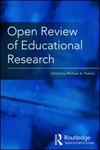Postdigital openness
Q1 Arts and Humanities
引用次数: 2
Abstract
In 2014 President Obama promised to open a US embassy in Havana. Leaked private emails between Hollywood actors about the film which depicts the assassination of Kim Jong Un forced media giant Sony to apologise for promoting terrorism. Robotic lander the Philae was the first human artefact which landed on the comet. Steven Hawking warned that Artificial Intelligence could end human life on Earth. Worldwide prices of oil crashed to peanuts. Malaysia Airlines Flight 370 took off and mysteriously disappeared. A deadly outbreak of Ebola, coupled with police brutality in the US and international conflicts in Ukraine, Crimea, Israel, and other places, have dominated everyday news. A new understanding of media has started to take off, and concepts such as fake news and post-truth have started to receive more prominence. As I write these words in November 2018, this arbitrary selection of ‘most important events’ in 2014 compiled from ABC News (Keneally, 2014) and Mashable (2014) is outdated: Cuba is more open than ever, Steven Hawking has unfortunately passed away, and oil is again expensive. Yet, my selection still tells a lot about our contemporary moment: Artificial Intelligence has continued to take over more and more jobs previously performed by humans, police brutality and armed international conflicts continue, post-truth has entered mainstream discourse and has significantly contributed to the election of the current US president Donald Trump (see Peters, Rider, Hyvönen, & Besley, 2018). Five years is a long time for media outlets that publish news on an hourly basis. Nevertheless, some news from my little blast from the past are obsolete, while others are as relevant as ever. Writing this text in November 2018, it is trivial to say which 2014 news are relevant today. But who could predict, back in 2014, which news will be relevant in November 2018? In ancient Rome, haruspices read the future from intestines of sacrificed animals; in today’s academic journals, editors read the future from reading, researching, talking to people, and intuition. These talents are unexplainable and unevenly distributed: hard work makes many solid researchers and editors, but the glory of reaching the pantheon of scientific revolutionaries (Kuhn, 1962) is reserved for the few. However, even the lousiest academic researcher and editor has a double role: we need to cor(respond) to current events, and we need to develop human thought by new ideas and their applications. Fruits of our work will probably never reach Plato’s ideal of complete timelessness, yet they should serve us at least a bit longer than a few days – if for no other purpose, then as stepping stones for researchers to come. In Research Methods 101, this usually amounts to definitions of ‘scientific contribution’ and to muddy differences between ‘pure’ and ‘applied’ research; in editing business, this distinction often serves as a dividing line between ‘high theory’ and ‘low theory’ (Jandrić, 2017, p. 107). However, the concept of openness equally embraces various types of research. During the past five years, the Open Review of Educational Research has become a practical example of a specific model of openness introduced in Michael Peters’ inaugural editorial. This model sees openness as ‘intellectual commons’, which ‘provides an alternative to the currently dominant “knowledge capitalism”’, while ‘being conscious of the historically different accounts of openness especially as it applies to education’ (Peters, 2014). Five years after Michael publishedPostdigital开放
2014年,奥巴马总统承诺在哈瓦那开设美国大使馆。好莱坞演员之间被泄露的私人邮件迫使媒体巨头索尼为宣传恐怖主义道歉,该电影讲述了刺杀金正恩的故事。机器人着陆器“菲莱”是第一个降落在彗星上的人类人工制品。史蒂芬·霍金警告称,人工智能可能会终结地球上的人类生命。世界范围内的石油价格暴跌至花生价格。马来西亚航空公司370航班起飞后神秘失踪。一场致命的埃博拉疫情爆发,加上美国警察的暴行,以及乌克兰、克里米亚、以色列和其他地方的国际冲突,占据了日常新闻的主要位置。对媒体的新理解已经开始兴起,假新闻和后真相等概念开始受到更多关注。当我在2018年11月写下这些话时,ABC新闻(Keneally, 2014)和Mashable(2014)随意挑选的2014年“最重要事件”已经过时了:古巴比以往任何时候都更加开放,史蒂芬·霍金不幸去世,石油再次昂贵。然而,我的选择仍然讲述了我们当代的很多事情:人工智能继续接管越来越多以前由人类完成的工作,警察暴行和国际武装冲突仍在继续,后真相已经进入主流话语,并对现任美国总统唐纳德·特朗普的当选做出了重大贡献(见Peters, Rider, Hyvönen, & Besley, 2018)。对于以小时为单位发布新闻的媒体来说,五年是很长的一段时间。尽管如此,我从过去的小爆炸中得到的一些新闻已经过时了,而另一些则一如既往地相关。在2018年11月写这篇文章时,很难说2014年的哪些新闻与今天相关。但在2014年的时候,谁能预测到2018年11月哪些新闻会成为热门新闻呢?在古罗马,haruspices从献祭动物的肠子里读出未来;在今天的学术期刊中,编辑通过阅读、研究、与人交谈和直觉来解读未来。这些天赋是无法解释的,而且分布不均:努力工作造就了许多可靠的研究人员和编辑,但进入科学革命者万神殿的荣耀却留给了少数人(库恩,1962)。然而,即使是最差劲的学术研究者和编辑也有双重角色:我们需要对时事做出反应,我们需要通过新思想及其应用来发展人类思想。我们的工作成果可能永远不会达到柏拉图理想中的完全永恒,但它们至少应该为我们服务比几天更长一点的时间——如果没有其他目的,那么作为研究人员到来的垫脚石。在《研究方法101》中,这通常等同于对“科学贡献”的定义,以及“纯粹”和“应用”研究之间的模糊区别;在编辑业务中,这种区别通常作为“高理论”和“低理论”之间的分界线(jandriki, 2017,第107页)。然而,开放的概念同样包括各种类型的研究。在过去的五年中,《教育研究开放评论》已经成为迈克尔·彼得斯(Michael Peters)就职社论中介绍的特定开放模式的一个实际例子。该模型将开放视为“知识公地”,它“为当前占主导地位的“知识资本主义”提供了另一种选择”,同时“意识到历史上对开放的不同描述,特别是在适用于教育时”(Peters, 2014)。迈克尔发表文章五年后
本文章由计算机程序翻译,如有差异,请以英文原文为准。
求助全文
约1分钟内获得全文
求助全文
来源期刊

Open Review of Educational Research
EDUCATION & EDUCATIONAL RESEARCH-
CiteScore
2.60
自引率
0.00%
发文量
0
审稿时长
22 weeks
 求助内容:
求助内容: 应助结果提醒方式:
应助结果提醒方式:


